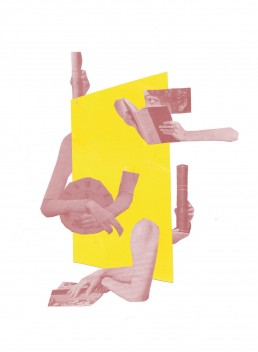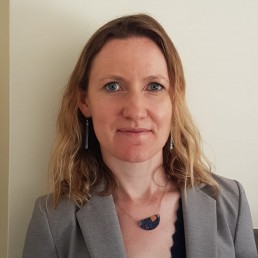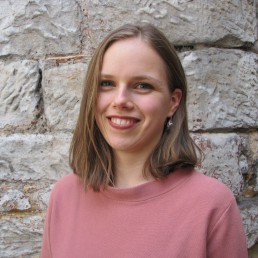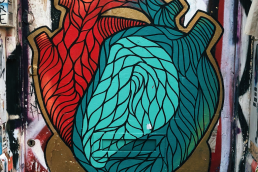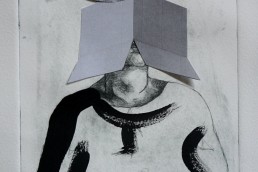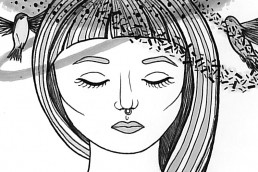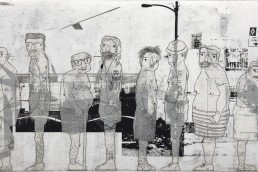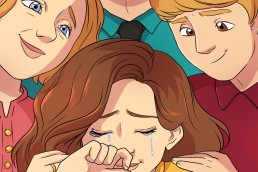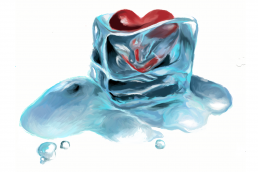By Cera Murtagh
Illustration by Ida Henrich
When it was first suggested to me by a lecturer that I could do a PhD I was overwhelmed with excitement and – to be honest – a little flattered by the idea that I could do a PhD (I could be an actual doctor!) When another adviser tried to broach some of the travails involved, I heard what he was saying but his words didn’t quite pierce my bubble.
A few years later I started a PhD in Politics at the University of Edinburgh. And it was during that time that my former adviser’s words started to mean something.
“The PhD was an incredible journey for me. It was intellectually fulfilling. I met amazing people and forged lasting bonds with my supervisors and colleagues.”
The PhD was an incredible journey for me. It was intellectually fulfilling. I met amazing people and forged lasting bonds with my supervisors and colleagues. I got to travel. And it opened up career opportunities that would, otherwise, have been out of my reach. It taught me a lot, not least about myself.
Some of those lessons, though, came through struggle. In my own experience and what I saw in those around me, the mental health challenges of doing a PhD are real and need to be taken seriously.
One of the biggest challenges for me was confidence. By its nature, the PhD is a fairly solitary endeavour – in the social sciences at least. You’re trying to pioneer a new idea – which is very exciting, but also a bit scary and, at times, a little lonely. Even with the most supportive of supervisors and colleagues, it can feel like you are on your own with it. And without the external validation you get from working in a team on a shared project, anxiety and doubt can creep in. ‘Is this research really worth anything?’ ‘Have I just convinced everyone I know what I’m doing?’ ‘Has this all been a massive waste of time?’
“You’re trying to pioneer a new idea – which is very exciting, but also a bit scary and, at times, a little lonely. Even with the most supportive of supervisors and colleagues, it can feel like you are on your own with it.”
Another difficulty I faced, at times, was feeling isolated. Being quite a social person, I missed that sense of connection from working with others. I was in my element when I was out in the field doing interviews, but I found the periods alone in the library tough.
One of the ways I dealt with the isolation was to work. For most of my PhD I had teaching and research jobs on the side. Working with students and colleagues was a wonderful experience that set me up well for the post-PhD phase and gave me that energy from working with others that I was missing.
There were times though when I took on too much and used these ‘side-jobs’ to avoid dealing with my own work. That left me feeling burnt out from splitting my attention between too many projects. Meanwhile the thesis was not writing itself!
With a lot of trial and error I got there in the end. As I went through I learned that I couldn’t do it on my own; I had to be honest when I was struggling and take support from my family and friends and supervisors. With their help I also realised that if I was going to finish I needed to look after myself, physically, socially and emotionally. For those three-to-four (plus) years the PhD is with you all the time; it’s part of you, and that can become intense. For me, finding ways to get me out of my head was essential – physical activities like yoga and hiking helped, as well as getting out into nature, meeting people and doing things that had nothing to do with my research.
Mindfulness became a huge support to me in the later stages too. It gave me clarity when I was mentally overloaded. And it helped me cultivate a sense of calm for when things were not going to plan.
“Mindfulness became a huge support to me in the later stages too. It gave me clarity when I was mentally overloaded. And it helped me cultivate a sense of calm for when things were not going to plan.”
So, would I encourage someone to do a PhD if they felt it was right for them? Absolutely; with a few caveats. Have a clear sense of why you are doing it and why your work is important. Stay connected with those around you and take their support when you need it. Look after both your mind and body and tend to the balance in your life. After all, the thesis is important but it’s not as important as you; and it should never come at the price of your wellbeing.
Cera Murtagh is Assistant Professor in Irish Politics at Villanova University
Cera Murtagh
Dr Cera Murtagh is Assistant Professor in Irish Politics / Comparative Politics at Villanova University, Pennsylvania. She previously held the position of Research Fellow at Queen’s University Belfast. Cera’s research explores the politics of post-conflict societies, with a particular focus on civic political parties and movements in ethically divided places. Her work has been published in a number of academic journals. Cera previously worked as a journalist and political researcher. She holds a PhD and MSc from the University of Edinburgh and a BA from NUI Galway.
Ida Henrich
Ida Henrich is a German Cartoonist, Illustrator and Designer based in Scotland. She has worked with award winning publishers, online coaches and magazines. Ida is a graduate of Communication Design at the Glasgow School of Art where she specialised in Illustration. In her own work she explores themes such as sex-education, growing up, and women’s experiences. Her comics and illustrations are written for both men and women and aim to start an open dialogue between partners, friends, parents, and children about their experiences. Ida believes that Art is a powerful way to make ideas and feelings tangible.
As Art Editor at Fearless Femme, Ida is responsible for all things visual, including the correspondence with our visual artists, the design and realisation of the online magazine and the illustration of our amazing cover women. She also creates artwork for some of our articles, poems and stories.
Ida loves her coffee in the morning, that feeling after finishing an illustration and going for a run in the (Scottish) sun; and pilates on the rainy days. Ida enjoys SciFi books and autobiographies, and autobiographical comics. She is always delighted to meet new people on trains but is also smitten being home alone colouring in an illustration that she has made way too intricate while listening to Woman’s Hour. You can contact her at ida@fearlessly.co.uk.

